Imagine this: While strolling through the mall, you pop into the nearest skincare shop. You’re captivated by all those gorgeously packaged products and delightful scents. But hold on a second! Have you ever stopped to consider the hidden fragrance ingredients?
Or to ask yourself, “Are fragrances safe?” or “Is fragrance bad for you?”
Well, my friend, what you’re about to discover might just surprise you. Inside those inviting scents is a whole world of secret fragrance dangers. Dangers that may be affecting your health more than you think.
Pin it for later! ⤵️
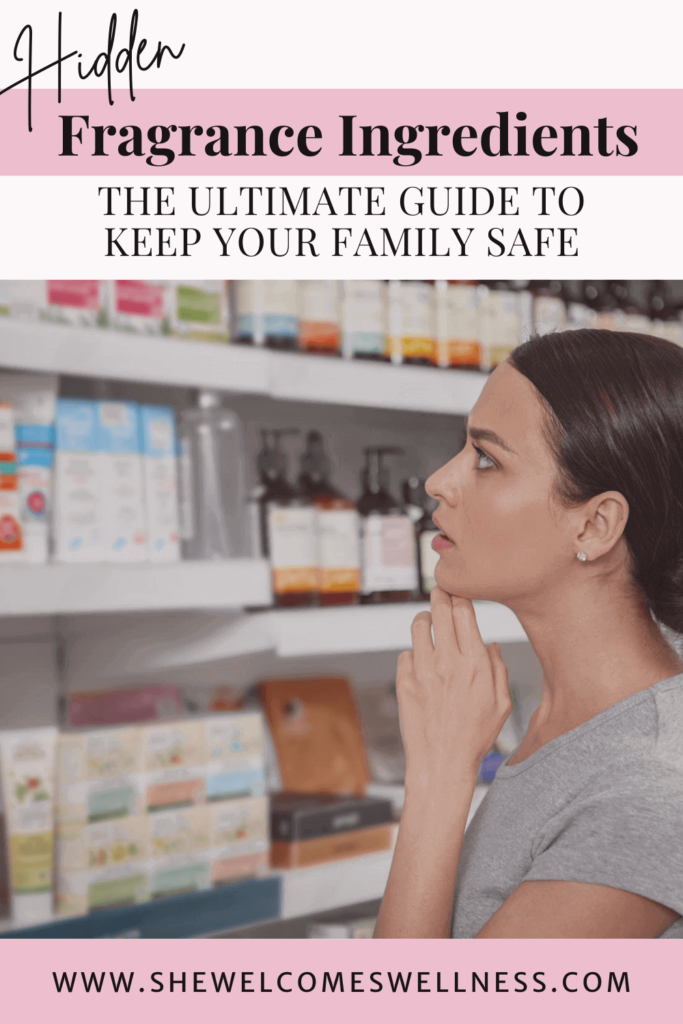
*This post contains affiliate links, which means I may receive a commission if you purchase through my links (at no extra cost to you). This helps me to keep this site ad-free. As an Amazon Associate, I earn from qualifying purchases. Please read my full disclosure for more information.
Table of Contents
ToggleWhat Is Fragrance?
If you’re like me, you may have always thought of fragrance and perfume as synonymous. It’s that stuff you spritz on your neck and wrists to smell delightful, right?
Well, sort of.
But here’s the thing. Those products ARE called fragrance, and they DO have fragrance and perfume ingredients in them. But they aren’t the only thing that’s meant by ‘fragrance’.
Fragrance is actually an umbrella term. So it appears as a single ingredient in the ingredients list even though it’s made up of many chemicals.
It may also be listed as ‘parfum‘ or ‘perfume‘ on the ingredient label.
How Many Ingredients Hide Behind the Word Fragrance?
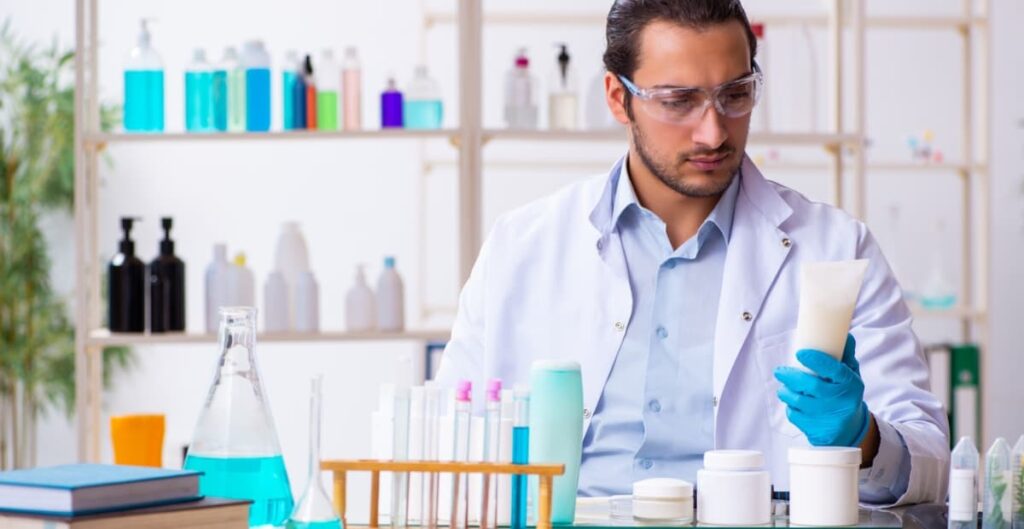
Let’s start here. The fragrance industry regulates itself.
That brings up some red flags for me. How about you?
The International Fragrance Association (IFRA) is one of the regulatory bodies.
The IFRA lists over 3,000 ingredients that can be used to make “fragrance.” The number is currently 3,619 to be exact.
According to the IFRA:
“The 2022 edition of the IFRA Transparency List includes 3,619 ingredients:
– 3,224 fragrance ingredients used for odor or malodor coverage; and
– 395 functional ingredients that are used to support the functionality and/or durability of a fragrance compound.”
So they’re used as odor masking agents or to extend the fragrance compound.
Unfortunately, there are many concerns about the hidden fragrance ingredients allowed by IFRA.
Parabens and phthalates.
Volatile organic compounds (VOCs).
Endocrine disruptors and carcinogens.
And that’s just a few of the toxic chemicals that can be hiding behind the word “fragrance.”
What’s the Problem With Secret Fragrance Ingredients?
There are numerous concerns about these hidden fragrance ingredients.
The Campaign for Safe Cosmetics weighed in with concerns about IFRA’s Transparency List. Some of these hidden fragrance ingredients “have evidence linking them to numerous health effects including cancer, reproductive toxicity, allergies and sensitivities.”
The concern about hidden fragrance ingredients is shared by Breast Cancer Prevention Partners (BCPP). “Many fragrance chemicals are linked to cancer, birth defects, hormone disruption, and other chronic health problems.”
There’s a plethora of information about fragrance ingredients in this paper. A few of the concerns were contact dermatitis, photosensitivity, and photoallergy. They also indicated that “fragrances have neurotoxic and neurostimulatory effects.”1 Pastor-Nieto, M. A., & Gatica-Ortega, M. E. (2021). Ubiquity, Hazardous Effects, and Risk Assessment of Fragrances in Consumer Products. Current treatment options in allergy, 8(1), 21–41. https://doi.org/10.1007/s40521-020-00275-7
I hope you can see that finding “fragrance” or “parfum” on an ingredient label IS a really big deal.
And a big part of the problem is caused by the trade secrets loophole.
What is the Trade Secret Loophole?
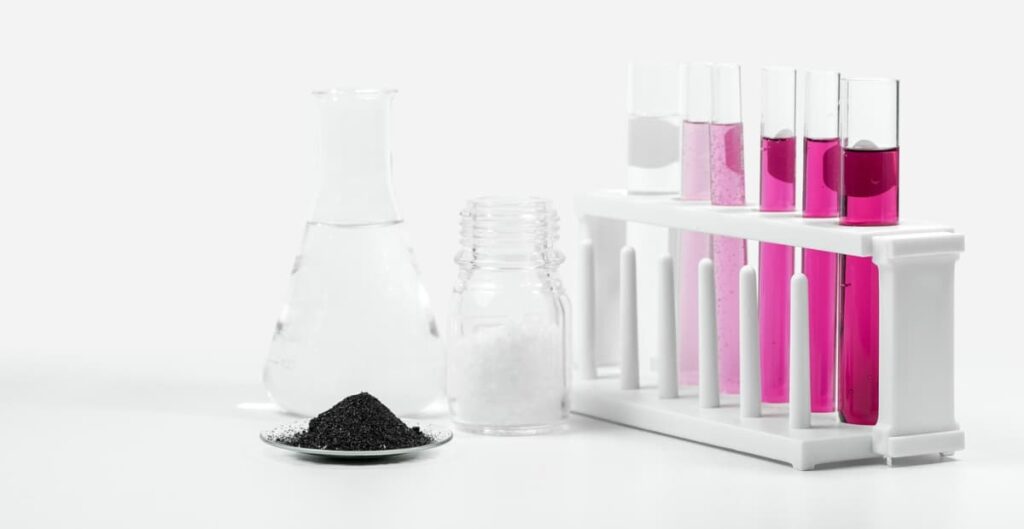
In short, the trade secret loophole allows companies to keep fragrance ingredients hidden.
Labeling laws in the United States allow companies to avoid disclosing proprietary formulas. This makes it harder for other companies to copy their formulation.
I’m sure that’s good for the fragrance industry and for the companies. But it’s definitely not good for us, the consumers.
Since the label hides the ingredients, we can’t know if the product has potential toxins.
So you may be unable to determine which ingredient is causing your negative health effects. We shouldn’t have to wonder what hidden chemicals are in our products!
Get ready for another shocker about fragranced products. If a product has fragrance it may also contain phthalates. Even if it is labeled PHTHALATE-FREE.
That’s because phthalates can be one of the chemicals used to make “fragrance”.
Effects of Fragrance on Human Health
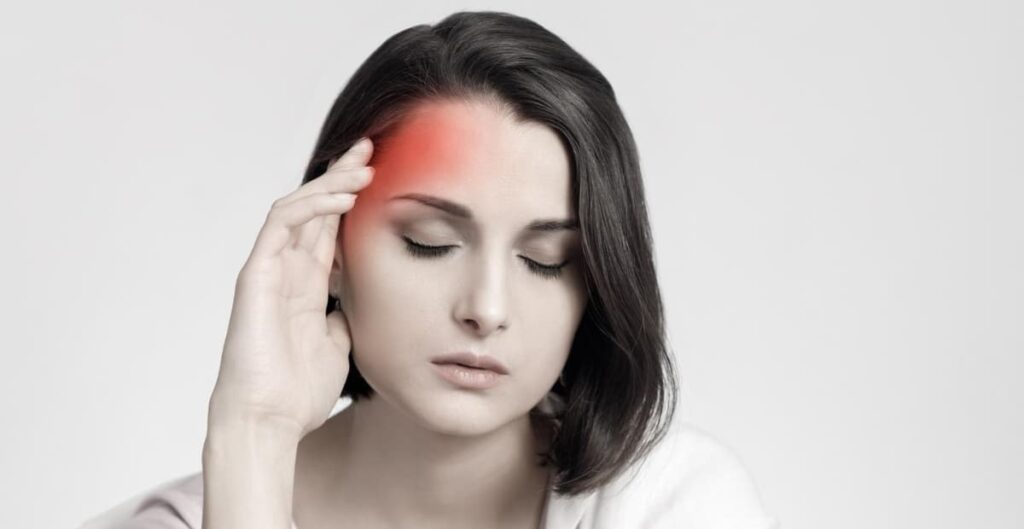
Hidden fragrance ingredients have many negative effects on human health (and pet health). Some common effects of exposure to fragrance include:
- nausea and headaches
- eye, nose, and throat irritation
- dermatitis
- asthma, allergies, & sinus issues
- increased risk of cancer
- endocrine disruption
- forgetfulness
- loss of coordination
- respiratory distress
- reproductive harm
- neurotoxic symptoms
Is Fragrance Only Found in Perfume?
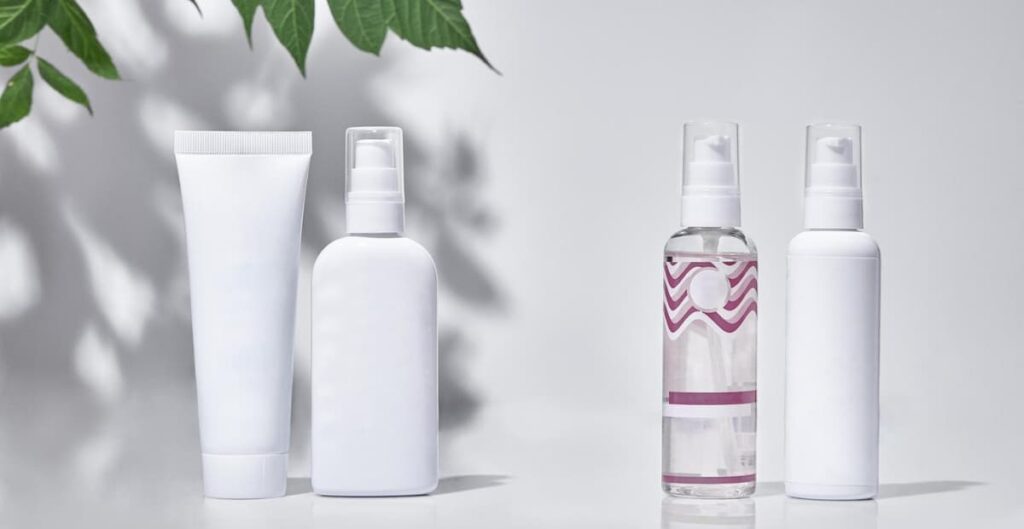
Nope, harmful fragrance ingredients are not only found in perfume or cologne. They are also in many of our personal care products and cleaning products. In fact, fragrance is in many of our everyday products.
Here’s a short list of common household products that often contain fragrance.
- Perfumes and colognes
- Synthetic musks
- Shampoo and conditioner
- Body wash and soap
- Skincare products for your face
- Cosmetics
- Skincare products for your body
- Baby wipes and baby lotions
- Air-fresheners and plug-ins
- Wax burners and candles
- Garbage bags
- Baby diapers
- Tissues
- Detergents-laundry and dishwasher
- Dryer sheets and fabric softeners
Fragrance can also be in products labeled as “unscented” or “fragrance-free.”
What’s the Difference Between Unscented and Fragrance-free?
Don’t simply rely on claims of unscented or fragrance-free.
Doesn’t unscented sound so innocent and safe? It’s not. The term “unscented” is often used as a greenwashing technique. Learn more about greenwashing here.
I always thought unscented meant not scented. It doesn’t.
Products labeled as “unscented” often contain masking fragrance. So they use masking fragrance chemicals to hide unpleasant scents and other ingredients. Oh, joy.
The term “fragrance-free” should mean that no fragrance chemicals are in the product. Sometimes that’s true. But don’t rely on it at face value.
A study tested the 174 top-selling moisturizers. The results are shocking.
Almost half (45%) of the products labeled “fragrance-free” actually contained fragrance chemicals.
Should You Avoid Products With Fragrance?

In short, my answer is yes, yes, YES!
Fragrance is always the first thing I’ll advise you to find and remove from your home. Some people choose to avoid synthetic fragrances but allow other types of fragrances.
As always, I’m gonna shoot ya straight here. In my home, we avoid ALL products that have fragrance on the ingredient list.
That includes the following terms in the ingredient list:
- Fragrance, parfum, perfume, aroma
- Synthetic fragrance
- Natural fragrance
- Fragrance oils
- Essential oils (unless they list each specific ingredient)
Check out the FAQs for more info on the terms used above.
How Can I Avoid Hidden Fragrance Chemicals?
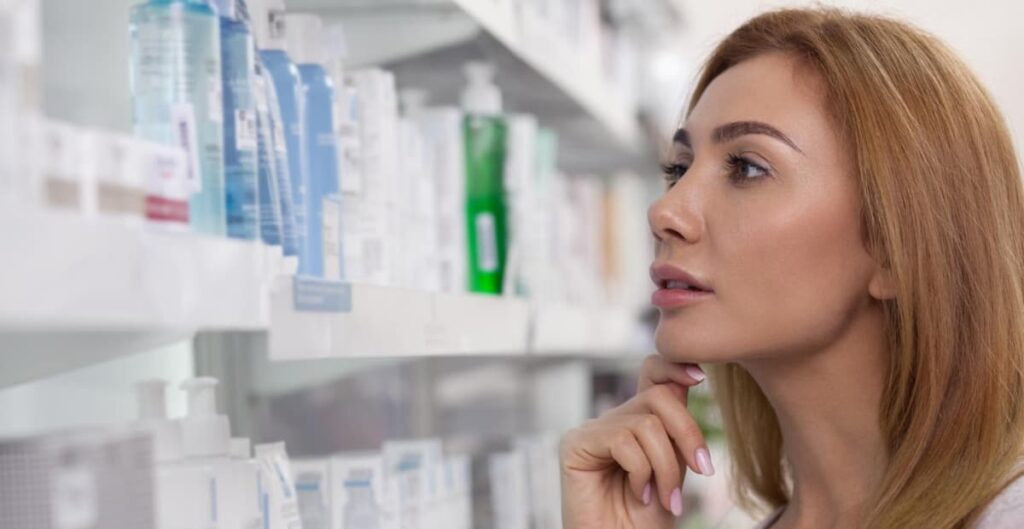
It’s a straightforward process to avoid hidden fragrance ingredients.
The BEST way is to read the ingredient list. Choose products with complete transparency.
- Turn your product over.
- Read the ingredient list.
- Look for these words
- Fragrance, parfum, perfume, or aroma
- Synthetic fragrance
- Natural fragrance
- Fragrance oils
- Essential oils
- Fragrance, parfum, perfume, or aroma
- If any of those words are in the ingredient list, you’ve identified a culprit.
Now you have to decide how you want to proceed.
For me, I threw away everything that had any of those words. Because I knew they had hidden fragrance ingredients.
It was extremely important to me to get them out of my house immediately.
You see, I was recovering from a hysterectomy which I had to have due to a serious precancerous illness.
And my oncologist told me environmental toxins caused my illness. You can read more about my story in this blog post.
So I KNEW I needed to get rid of all fragranced products.
I was already having ill effects from the toxins in my home environment. I had those autoimmune illnesses and then the precancerous condition on top of those.
I decided enough is enough. But that was how I decided to handle it. You may not need to take such a drastic approach.
Should I Let the Dangers of Hidden Fragrance Freak Me Out and Cause Anxiety?
Noooooo. Please don’t do that.
It won’t serve you or your family. All it will do is add a different type of stress to your body.
Honestly, you just have to take a moment to decide the best way to handle the process for yourself and your family.
When you know better you can do better, right? Now you hopefully know a little more about the hidden dangers of fragrance. So you can make choices that prioritize your health and wellness.
You Have Options!
Will you throw them all away at once, as I did? That’s definitely one way to go.
Or…
Will you opt for a more gradual approach? You can easily make non-toxic swaps to safer alternatives as you use up what you already have at home.
Start by replacing one product that contains fragrance. A great place to start is with your skincare since it absorbs into your skin all day and all night.
Then next month, pick one more product to switch out. These non-toxic swaps add up!
In a year, you’ll have swapped out 12 products with safer ingredients!
Both of those are great ways to start! I advise you to switch out the products you put ON your body and IN your air first.
Skincare, cosmetic products, lotions, deodorant, air fresheners, candles, dryer sheets and more. I share some of my recommendations below and on my resources page.
The key is to make non-toxic swaps for the products you put ON your body and IN your air first.
When It Comes to “Perfume” Are There Any Without Hidden Fragrance Ingredients?
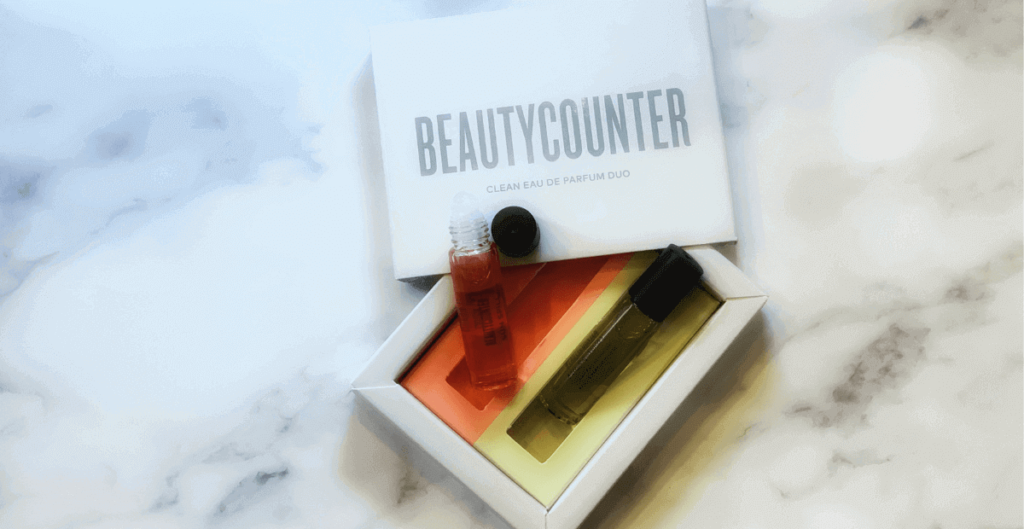
Yes! There ARE perfumes and fragrances without hidden fragrance chemicals. Here are some tips for choosing safe scents.
- Look for ingredient transparency.
- That means they list EVERY SINGLE INGREDIENT in their formulation.
- They don’t only list “essential oils” as an ingredient. They disclose which specific essential oils they used.
- They don’t only state “natural fragrance” as an ingredient. They disclose ALL the specific ingredients that they used.
- That means they list EVERY SINGLE INGREDIENT in their formulation.
- Choose a fragrance that is EWG-verified.
- The Environmental Working Group verifies every ingredient in these formulations.
- It doesn’t contain any of EWG’s ingredients of concern that harm health and the environment.
- It meets stringent air quality standards.
- The Environmental Working Group verifies every ingredient in these formulations.
My favorite Clean Beauty brand recently launched its first fragrance set, and I am over the moon! There are NO hidden fragrance ingredients in this eau de parfum.
This Clean Eau De Parfum Duo is EWG verified and comes with two beautiful, safe scents, Sun Spill and Miles Away.
I haven’t worn fragrance in 6 ½ years, since my health scare and hysterectomy. And to be honest, I didn’t know if I would ever find a non-toxic perfume I could trust.
I’m so glad I tried this new, clean, safe fragrance. I can’t recommend it enough.
Summary: Hidden Fragrance Ingredients: How to Keep Your Family Safe
In this article, we’ve uncovered the secret of hidden fragrance ingredients.
We’ve touched upon ways fragrance chemicals might be harming your health. And we’ve stopped to consider, “Are fragrances safe?” or “Is fragrance bad for you?”
I’ve shared that fragrance can hide almost 4,000 potentially harmful or toxic ingredients.
We’ve exposed the trade secret loophole. And how it lets companies keep ingredients hidden by using the word “fragrance.”
Next, we addressed that fragrance isn’t only found in perfumes and colognes. It can be in anything from your skincare products to your personal care products. It may be in your tissues, detergents, and beyond.
Additionally, we explored the many negative effects fragrance can have on human health.
And I shared my recommendations for choosing safer products free of fragrance ingredients. And my favorite safe scents.
There is no doubt that this can be overwhelming. When I first learned about all of this, I felt overwhelmed. I honestly wasn’t sure where to start at first.
My friend, if you’re feeling overwhelmed or unsure where to begin, I’ve got you covered.
Ready to Start Removing Hidden Fragrance Ingredients?
Here are some of my favorite clean products. They’re formulated without the use of 2,800 other harmful or toxic ingredients. And they will never include fragrance.
I’m here to help you along the way. I’ve created this Clean Beauty for Age-Defying Skin free guide with helpful info to get started.
Get it by clicking the button below!
Clean Beauty for Age-Defying Skin: Elevate Your Glow
- Get Clear on Clean Beauty
- Simple Steps to Choosing Safer Products
- Self-Assess Your Skincare Habits
- Holistic tips to elevate your beauty routine
- Love Your Mature Skin Again
Fragrance FAQ
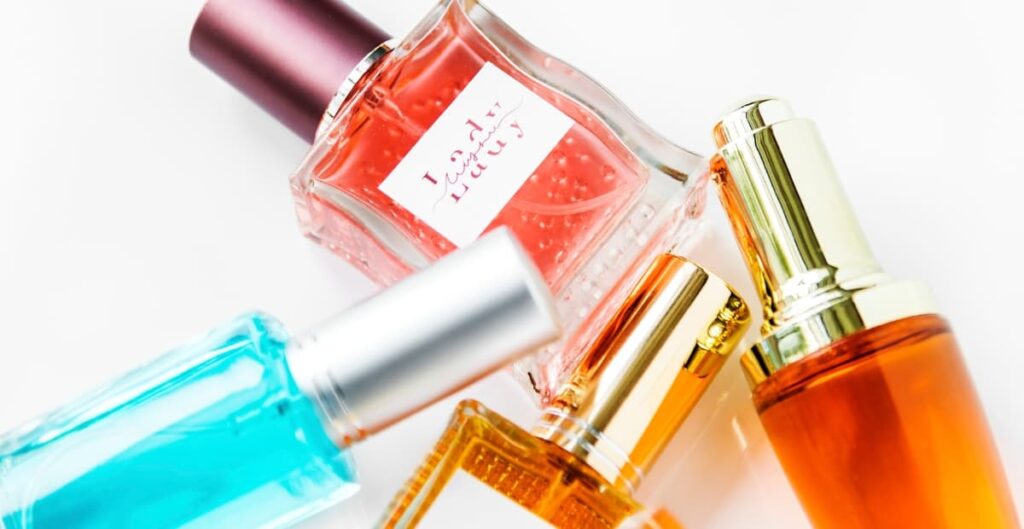
Disclosure: I’m not a doctor, and none of the information in this blog post is medical advice. I am sharing my personal experience and the information I learned from my own research.
We’ve talked about some of the words that tell you that fragrance ingredients are in your products.
In my home, we avoid all products that list any type of fragrance on the ingredient list. Here are some answers to Frequently Asked Questions.
What About Natural Fragrances?
Natural fragrances use materials found in nature, and may or may not be lab-created.
Just because they are called “natural” does not mean they are safe.
Natural fragrances can contain hidden fragrance ingredients too. Including allergens, endocrine disruptors, and carcinogens.
“It is important that companies look for safer alternatives where available and report all ingredients in their fragrances, both natural and synthetic, so that consumers are able to avoid potential allergic reactions and other health consequences.“ –Breast Cancer Prevention Partners (BCPP)
What is Synthetic Fragrance?
Synthetic fragrance is created in a laboratory. They may smell like natural aromas, but don’t let that fool you. They’re often made from petroleum.
Yep, you read that right.
The National Academy of Sciences reports that 95% of chemicals used in synthetic fragrances are derived from petroleum.
These petroleum ingredients “include benzene derivatives, aldehydes, toluene, and many carcinogenic compounds.”
It’s important to note that not all synthetic ingredients are unsafe. That’s why I buy from companies that report every ingredient.
Synthetic vs. Natural Fragrance
Synthetic fragrances are created in a laboratory and are often made from petroleum.
Natural fragrances use materials found in nature, and may or may not be lab-created.
While natural fragrance sounds much better than synthetic, I don’t trust it.
“Fragrance ingredients, regardless of natural or synthetic origins, may all cause health or environment problems.” [emphasis added] Source: Fundamentals of Quorum Sensing, Analytical Methods and Applications in Membrane Bioreactors
The word “fragrance” indicates the presence of undisclosed ingredients in natural fragrance. It’s that trade secret loophole again.
Instead, buy from companies that list EVERY ingredient with complete transparency.
Are Fragrances Bad for Your Skin? Are There Side Effects of Fragrance on Skin?
We know that fragrance causes dermatitis. Dermatitis includes symptoms like skin irritation, sensitivity, rashes, itchiness, swelling, bumps, etc.
Not all people will have negative reactions to all fragrances. If you do have a reaction though, it’s impossible to know which specific ingredient you are reacting to.
That’s because of that trade secret loophole we spoke about earlier.
Is It Bad to Use Skincare With Fragrance?
Personally, I won’t use skincare products that include fragrance as an ingredient. I don’t want something on my skin all day long that includes potentially toxic ingredients. Or all night long, for that matter.
Your skin is your largest organ. It’s also your most absorbent organ.
For me, applying undisclosed chemicals that will be absorbed throughout the day is unwise.
Is Perfume Bad for Your Lungs?
According to the EWG, fragrances have a connection with negative respiratory consequences.
They can cause respiratory distress. Fragrances can trigger asthma in some people.
Is Perfume Bad for Your Hormones?
Perfumes and fragrances can include ingredients that are endocrine disruptors. Endocrine disruptors are chemicals that block, mimic, interrupt, or disrupt the body’s hormones.
One chemical that may be in fragrance is phthalates. Phthalates disrupt hormones.
And a product can claim to be phthalate-free but have phthalates hidden in the fragrance.
Are Fragrances Bad for You?
In my opinion, “fragrance” is not worth the risk. Products don’t need fragrance to work well.
There are studies that show that fragrance ingredients can be bad for your health. And for the environment.
Click this link to go to the What’s the Problem With Secret Fragrance Ingredients? section for more information.
What Is Toxic About Fragrance?
The term “fragrance” can hide close to 4,000 chemical ingredients. Some of those ingredients can be dangerous to your health.
“Many fragrance chemicals are linked to cancer, birth defects, hormone disruption, and other chronic health problems.” Source: Breast Cancer Prevention Partners (BCPP).
Click this link to go to the What’s the Problem With Secret Fragrance Ingredients? section for more information.
Are Products Labeled Fragrance-Free Safer?
In theory, yes. Fragrance-free products should be made without any hidden fragrance ingredients. Unfortunately, that’s not always the case.
Sometimes fragrances are used as odor masking agents. They cover up the unpleasant odors created by other chemicals in the formulation.
So I would definitely read the ingredient label to be sure it doesn’t include any of the words associated with hidden fragrance ingredients.
Don’t just trust the “fragrance-free” or “unscented” terminology on the front of the label.
Is It Bad to Wear Fragrance Everyday?
If we’re talking about synthetic fragrance or natural fragrance, my answer is yes.
When I found environmental toxins were the cause of my condition, I took immediate action. Fragranced products were the first thing I removed from my home.
In all transparency, because of that I have not worn or used products with fragrance in 6 ½ years. But that’s because I couldn’t find a non-toxic perfume that I trusted.
You will have to decide for yourself. I highly suggest you consider the benefits versus risks.
There are safer choices that don’t have the hidden dangers of fragrance.
Those options are better for your health and the health of your family. And the health of the environment.
Are Scented Sprays Bad for Your Health?
If the scented sprays include fragrance on the ingredient list I would avoid them.
We know that fragrance ingredients can cause a variety of health issues. Breathing harmful fragrance chemicals is a risk I would suggest avoiding.
Is Fragrance in Body Wash Bad for You?
If the body wash includes fragrance on the ingredient list I would avoid it.
Again, we know that fragrance ingredients can cause a variety of health issues. So, I certainly would not suggest purchasing a product with fragrance in it.
There are body washes that don’t have fragrance in them. Read the ingredients. Choose one that lists all the ingredients instead of the word fragrance.
Should I Freak Out and Get Anxious About Hidden Fragrance Ingredients?
No. Definitely not. Freaking out and getting anxious about it will only add a different type of stress to your body.
When you know better you can do better. Now you hopefully know a little more about the hidden dangers of fragrance. So you can make choices that prioritize your health and wellness.
You can easily start by replacing one product that has fragrance in it. A great place to start is with your skincare. That absorbs into your skin all day and all night.
Then next month, pick one more product to switch out. These non-toxic swaps will add up! In a year, you’ll have swapped out 12 products with safer ingredients!
I suggest first swapping skincare, moisturizer, makeup, and body lotions. These products stay on your skin throughout the day, making them a good starting point.
Can Anything Be Done to Get Fragrance Out of Our Products?
There are several ways you can take action.
- Vote with your dollars–spend your money on safer products.
- This is my favorite Clean Beauty brand, and we are on a mission to change the beauty industry forever.
- Join Beautycounter’s movement to fight for clean beauty laws!
- Text RAISEUPBEAUTY to 52886.
- Join Breast Cancer Prevention Partners to try to remove cancer-causing ingredients from our products.
- Grab my FREE Age-Defying Clean Beauty Guide below and start making small changes.
Clean Beauty for Age-Defying Skin: Elevate Your Glow
- Get Clear on Clean Beauty
- Simple Steps to Choosing Safer Products
- Self-Assess Your Skincare Habits
- Holistic tips to elevate your beauty routine
- Love Your Mature Skin Again
Don’t forget to Pin it for later! ⤵️
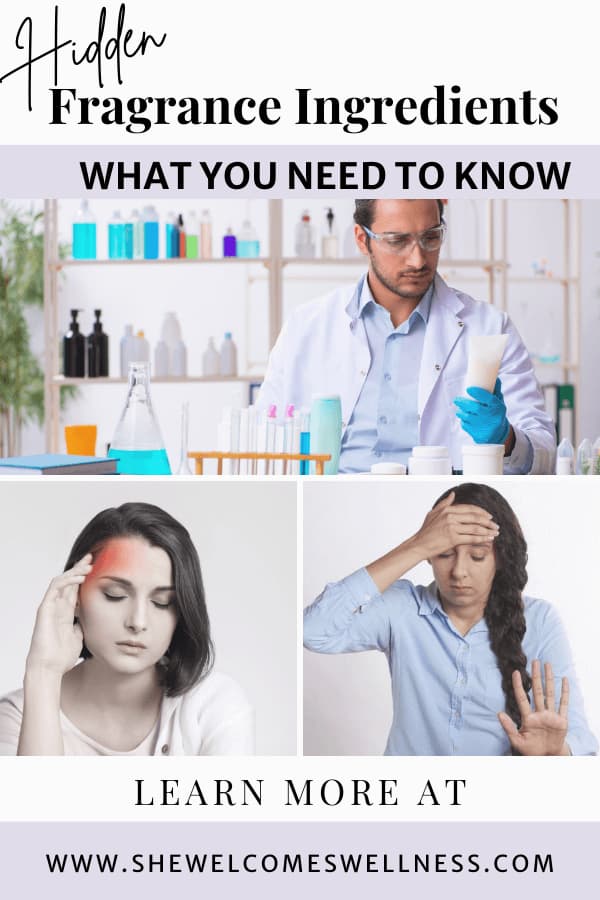
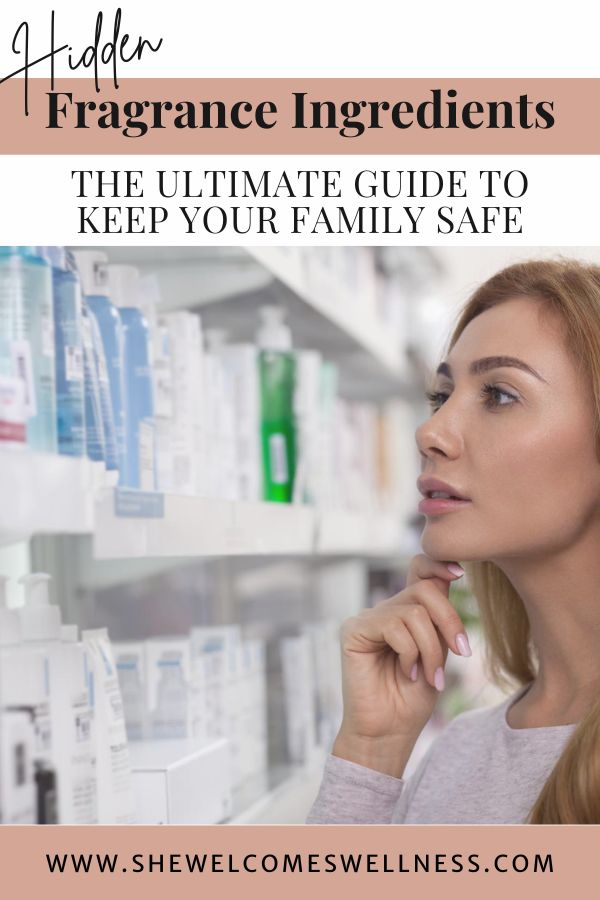
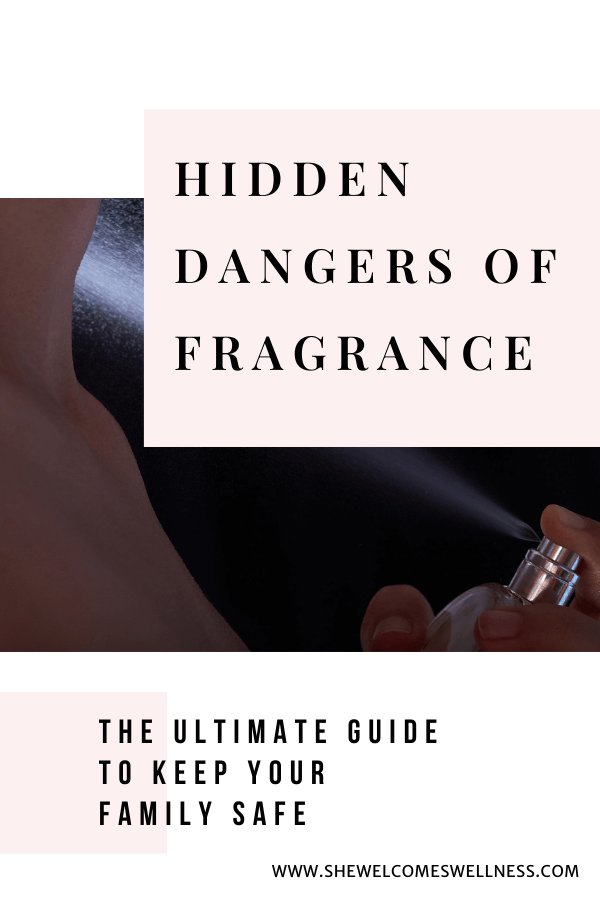

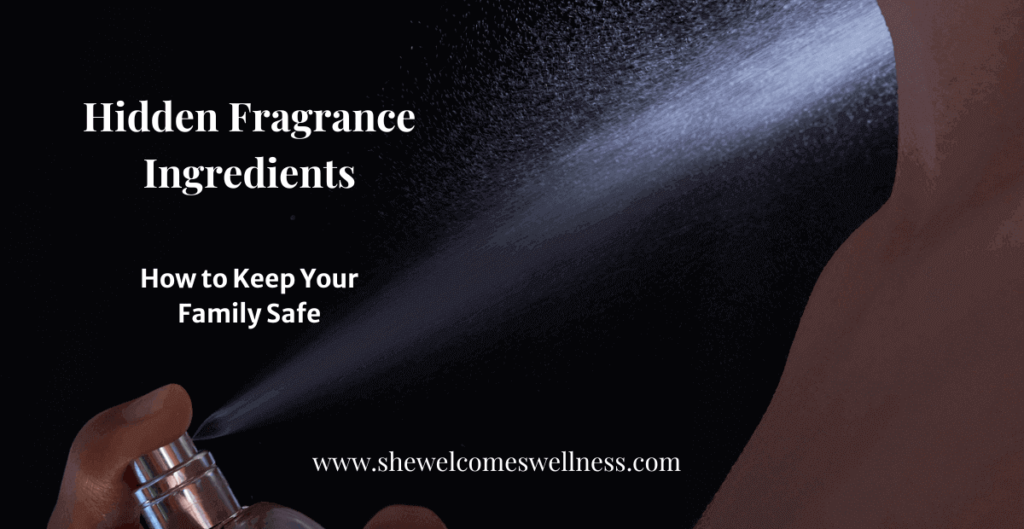
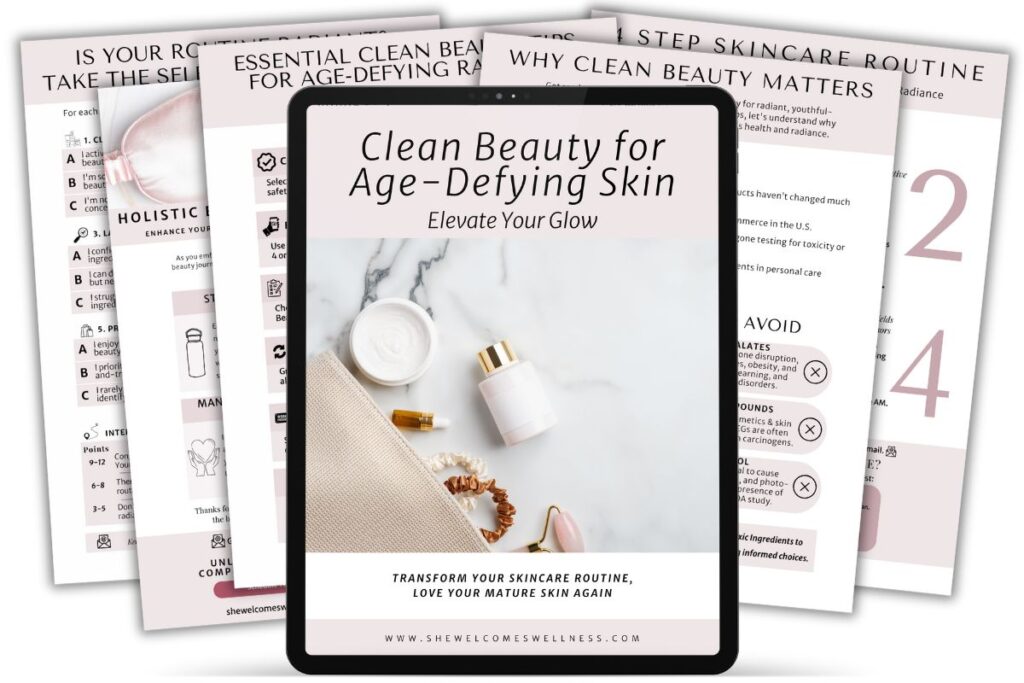

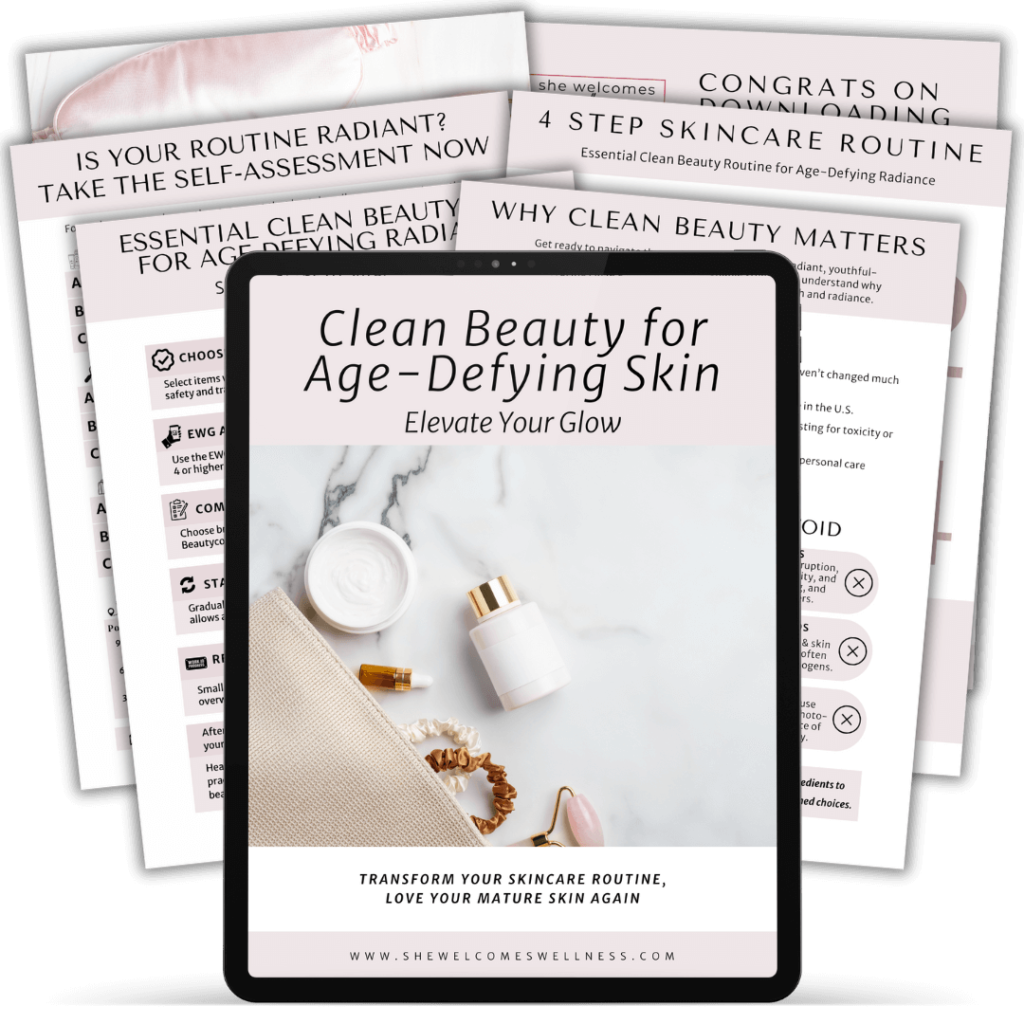
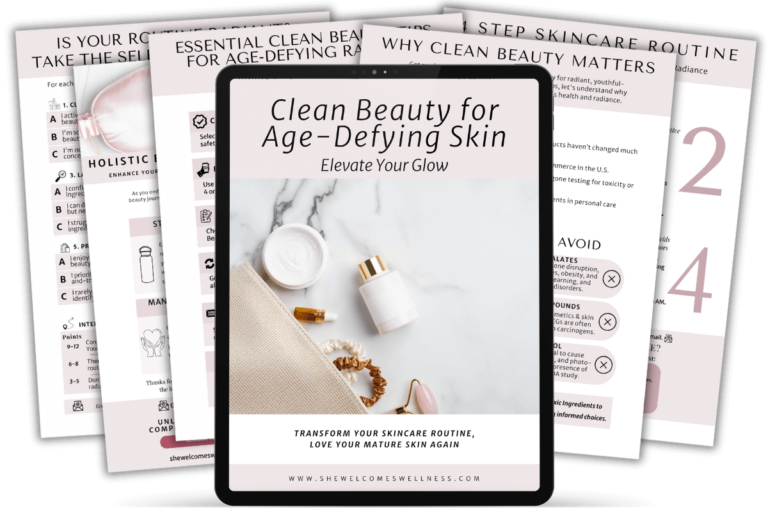
11 Responses
Such a great post! I always get headaches from scents or even perfumes labeled fragrance free! I’m excited to try a better brand, thanks
I get headaches from products with fragrance, too! I’m so glad this post was helpful for you. Thanks for taking the time to comment!
What an amazing and educational article. Thank you so much for educating me. I really appreciate all the effort you put into writing this.
I’m so glad you found value in it! Thank you for taking the time to comment.
It is an eye-opener when you highlighted that we should avoid products with fragrances esp someone like me who’s so after with fragrances when buying stuff! Great article!
I’m so glad you found the article to be helpful and eye-opening! Definitely take a look at your products, it’s worth the effort. Thanks for taking the time to comment.
Wow! I think I’m gonna go and take a look at my toiletries.
Yes, definitely take a look! It’s so important. Thanks for taking the time to comment.
I no longer use most of the products mentioned in this post because of my many health issues. There’s so many toxins in everything today. We need to do what we can to avoid the poisons.
I completely agree that we need to do what we can to avoid these toxins! We can’t control everything, but we can control some things. I’m so happy to hear you’ve removed a lot of these toxins from your everyday products!
Such a well written one. Learnt so much today. Thank you!